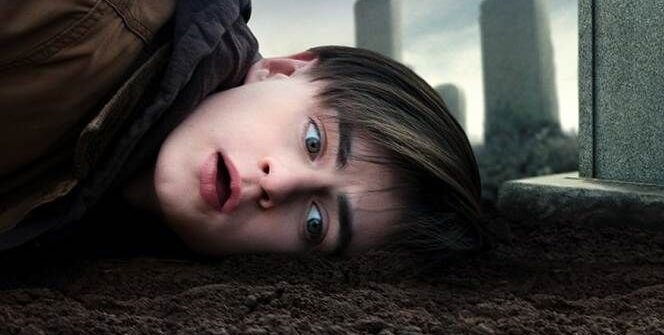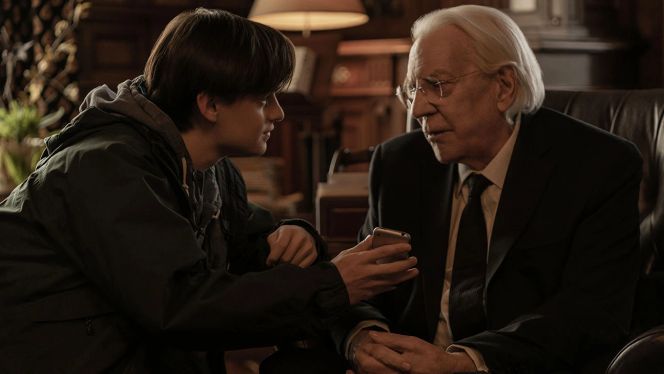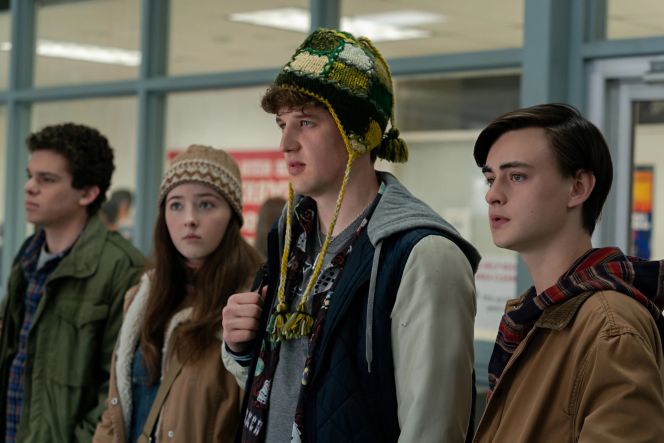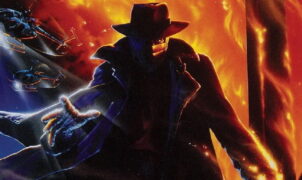MOVIE REVIEW – I have long been a fan of Stephen King’s short stories beyond his longer novels, and some of them have been adapted into great films in the past, including “Stand by Me”, “Prisoners of Hope” and “The Mist”. The master of horror’s 2020 collection If It Bleeds opened with the wonderful little ghost story Mr. Harrigan’s Phone, which has now been made into a Netflix original horror film directed by John Lee Hancock, director of Late Starter and Champions of the Heart. He has brought the seriousness of those films to King’s ghost story, proving just how inappropriate a filmmaker he is for this project.
In his latest film adaptation of one of Stephen King’s works, he proves once again that he can draw tension from the most unlikely sources. In this case, it is technology, or more specifically, mobile phones, one of which proves to be a means of communication between the living and the dead. Unfortunately, despite the intriguing premise, Mr. Harrigan’s phone lacks the necessary ingredients to make it truly memorable; it’s just not very scary.
The basis is a short story
The film, which premieres on Netflix, is based on a short story from King’s 2020 collection If It Bleeds, and is set in a seemingly idyllic small New England town that has been the backdrop for so many of his works. The prologue, set in 2003, introduces us to Craig (Colin O’Brien), a young boy who is raised alone by his loving, working-class father (Joe Tippett) after his mother dies. Soon after, the reclusive Mr. Harrigan (Donald Sutherland), the richest man in town, becomes fascinated after Craig gives a Bible reading at church. He offers him $5 an hour to come to his stately mansion and read aloud books, including such unchildren’s titles as Lady Chatterley’s Lover and The Heart of Darkness.
We then jump very quickly to a few years later, when a friendly and respectful relationship has developed between the now teenage Craig (Jaeden Martell, a veteran actor from the previous King adaptation, AZ) and his elderly employer. Mr. Harrigan even sends him his usual gift of scratch-off lottery tickets on a regular basis, one of which he manages to win $3,000. But a grateful Craig gives Mr Harrigan an iPhone as a gift, which the inveterate Luddite admits he doesn’t care for. However, when Craig demonstrates that the device can provide up-to-date stock market reports, the billionaire investor is immediately converted. They even have a ringtone in common, Tammy Wynette’s “Stand by Your Man”, the title of which eventually takes on a “creepy” connotation.
The dangers of the internet
Mr Harrigan is prescient about the potential dangers of an unlimited internet. He also gives a long sermon on, among other things, its potentially damaging consequences for the media and politics, which seems eerily prescient (but of course written in hindsight). It is clear that this theme inspired King to write the story, and the horror elements were included to make the story interesting nonetheless.
The problem is that the subsequent plot developments, intended to be creepy, are not rendered sufficiently creepy by director/screenwriter John Lee Hancock (The Blind Side). Mr Harrigan dies suddenly and leaves Craig a substantial sum of money to go to college and pursue his dream of becoming a screenwriter (it’s not hard to guess what Mr Harrigan thought of this idea). The grateful young man secretly puts his employer’s phone in the coffin with the body as a final token of their friendship.
As one is sometimes inclined to do with a deceased friend or loved one, Craig impulsively calls Mr. Harrigan’s phone and leaves him messages in times of trouble, such as when he falls victim to a creepy bully (Cyrus Arnold) at school. When he starts receiving text messages in response, and the bully is soon mysteriously found dead, he begins to worry that his former employer is “helping” him from beyond the grave.
This phone is not black enough
The recent horror movie The Black Phone used similar ideas, but in a much more effectively terrifying way. Hancock simply doesn’t seem too interested in going beyond the basic concept to make a creepy horror film. To be fair, the horror elements in King’s novel were not particularly well developed either. Instead, the film is primarily a thought-provoking portrait of an unlikely friendship and a coming-of-age story in which a young man learns the dangers of getting what he wants.
Even so, the film has some impact, as Sutherland uses his veteran skills to render the surly Mr. Harrigan as if he’s stepped out of a Dickens novel, and Martell, who has consistently excelled in films like St. Vincent, Midnight Special and The Book of Henry, makes us really care about the sensitive, troubled teenager.
This is one of those rare King adaptations that proves less interesting the more horrific the story tries to become.
-BadSector-
Mr. Harrigan's Phone
Direction - 4.4
Actors - 8.2
Story - 5.4
Visuals/horror elements - 3.2
Hangulat - 5.4
5.3
MEDIOCRE
This is one of those rare King adaptations that proves less interesting the more horrific the story tries to become.


















Leave a Reply